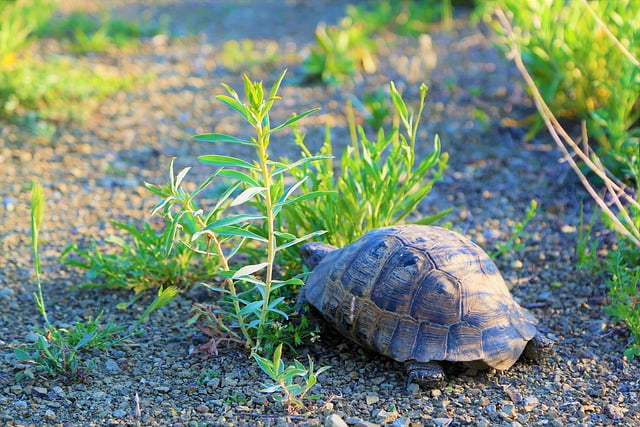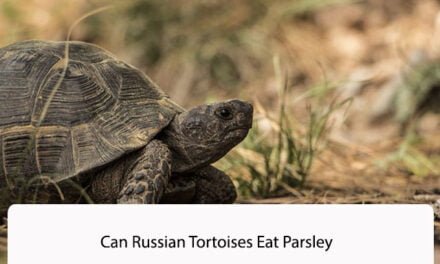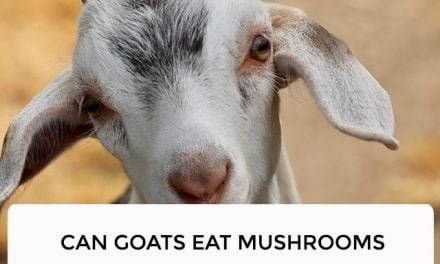Tortoises are known for their slow movements and their love for munching on various greens. They are herbivores and require a diet that is rich in fiber and nutrients. However, when it comes to feeding them, it’s important to ensure that their food is safe and healthy for them. One question that often comes up is whether tortoises can eat dandelion flowers.
Dandelion flowers are a common sight in many gardens and are often considered a weed. However, they are also known for their medicinal properties and are used in various herbal remedies. But can tortoises eat them? The answer is yes! Dandelion flowers are safe for tortoises to eat and can be a great addition to their diet. They are rich in vitamins and minerals and can help keep your tortoise healthy and happy.
While it’s safe for tortoises to eat dandelion flowers, it’s important to ensure that they are free from pesticides or any other harmful chemicals. It’s best to collect them from an area that is free from pollution and has not been treated with any chemicals. Additionally, it’s important to remember that dandelion flowers should only be fed to tortoises as a treat and not as a staple food. A varied diet that includes other greens and vegetables is essential for their overall health and wellbeing.

Understanding Tortoises’ Diet
General Diet
Tortoises are herbivores, which means they eat only plants. In the wild, their diet consists of a variety of plants, including grasses, flowers, and weeds. They also eat fruits and vegetables when they are available. In captivity, it’s important to provide them with a balanced diet that meets all their nutritional needs.
One of the most important things to consider when feeding a tortoise is the calcium to phosphorus ratio. Tortoises need a lot of calcium to keep their shells healthy and strong. They also need phosphorus, but in smaller amounts. Feeding a diet that is high in phosphorus and low in calcium can lead to metabolic bone disease, which can be fatal.
Special Dietary Needs
Different species of tortoises have different dietary needs. For example, some tortoises are adapted to eating tough, fibrous plants, while others prefer softer, leafy greens. It’s important to research the specific dietary needs of your tortoise to ensure they are getting the right nutrients.
Tortoises also have special dietary needs based on their age and health. Young tortoises need more protein in their diet to support their growth, while older tortoises need less protein and more fiber to help with digestion. Sick or injured tortoises may have specific dietary requirements to help them recover.
When feeding a tortoise, it’s important to offer a variety of foods to ensure they are getting all the nutrients they need. Some good options include:
- Dark leafy greens, such as kale, collard greens, and dandelion greens
- Grasses, such as timothy hay and alfalfa hay
- Vegetables, such as carrots, squash, and sweet potatoes
- Fruits, such as apples, strawberries, and melons
It’s also important to avoid feeding your tortoise foods that are toxic or harmful to their health. Some common foods to avoid include avocado, rhubarb, and tomato leaves. By providing a balanced and nutritious diet, you can help ensure your tortoise stays healthy and happy.
Dandelions in a Tortoise’s Diet
Nutritional Value
Dandelions are a natural and nutritious food for tortoises. They are low in calories, high in fiber, and contain essential vitamins and minerals that your tortoise needs to stay healthy. Dandelions are an excellent source of vitamin A, vitamin C, calcium, and iron. They also contain antioxidants that can help boost your tortoise’s immune system.
Potential Risks
While dandelions are generally safe for tortoises to eat, there are a few things to keep in mind. First, you should always wash the dandelions thoroughly before feeding them to your tortoise. Dandelions that have been sprayed with pesticides or other chemicals can be harmful to your pet. Secondly, you should avoid feeding your tortoise dandelions that have grown near roads or other areas that may be contaminated with pollutants.
In addition, dandelions are high in oxalic acid, which can bind with calcium and prevent it from being absorbed by your tortoise’s body. This can lead to calcium deficiencies and other health problems. To avoid this, you should only feed your tortoise dandelions in moderation and make sure that they are getting enough calcium from other sources.
In conclusion, dandelions can be a healthy addition to your tortoise’s diet, but it’s important to be mindful of the potential risks and to feed them in moderation. By following these simple guidelines, you can ensure that your tortoise stays healthy and happy for years to come.
How to Feed Dandelions to Tortoises
Preparation
When feeding dandelions to tortoises, it is important to ensure that they are free from pesticides and other harmful chemicals. Therefore, it is recommended to grow your own dandelions or purchase them from a trusted source.
Before feeding dandelions to your tortoise, it is important to wash them thoroughly to remove any dirt or debris. You can do this by soaking them in water for a few minutes and then gently rubbing them with your hands.
Once the dandelions are clean, you can offer them to your tortoise. It is recommended to chop them into small pieces to make it easier for your tortoise to eat.
Frequency
Dandelions can be fed to tortoises as a treat or as part of their regular diet. However, it is important to keep in mind that they should not be the only food source for your tortoise.
A good rule of thumb is to offer dandelions to your tortoise once or twice a week in small amounts. Overfeeding dandelions can cause digestive issues and other health problems.
In addition to dandelions, it is important to provide your tortoise with a variety of other vegetables and fruits to ensure they are getting a balanced diet.
Overall, feeding dandelions to tortoises can be a nutritious and enjoyable addition to their diet when done in moderation and with proper preparation.

Alternatives to Dandelions
If you’re looking for alternative greens to feed your tortoise, there are plenty of options available. Here are a few examples:
1. Collard Greens
Collard greens are a great source of nutrition for tortoises. They’re high in calcium, which is essential for healthy bone growth and development. They also contain vitamin A, which is important for maintaining good eyesight and healthy skin.
2. Mustard Greens
Mustard greens are another good option for tortoises. They’re high in fiber, which helps promote healthy digestion, and they’re also a good source of vitamin C, which is important for maintaining a healthy immune system.
3. Kale
Kale is a popular choice for tortoise owners because it’s high in calcium and vitamin A. It’s also a good source of vitamin C and iron, which are important for maintaining good health.
4. Endive
Endive is a leafy green that’s high in fiber and low in calories. It’s also a good source of vitamin C and vitamin K, which is important for healthy blood clotting.
5. Romaine Lettuce
Romaine lettuce is a good choice for tortoises because it’s low in oxalates, which can interfere with calcium absorption. It’s also high in vitamin A and potassium, which are important for maintaining good health.
Remember to always provide a variety of greens to ensure your tortoise is getting a balanced diet. Rotate the greens you offer to keep things interesting for your pet.
Conclusion
In conclusion, dandelions are a nutritious and safe food option for tortoises. They are low in fat and high in fiber, making them an excellent source of roughage for these herbivorous reptiles.
While dandelions have diuretic properties, there is no evidence to suggest that they are harmful to tortoises in moderate amounts. In fact, some tortoise owners even use dandelions as a natural remedy for constipation.
It is important to note that tortoises should not be fed dandelions that have been sprayed with pesticides or herbicides. These chemicals can be harmful to tortoises and may even be fatal in some cases. Always make sure to thoroughly wash any dandelions before feeding them to your tortoise.
Overall, dandelions can be a great addition to your tortoise’s diet. They are readily available and easy to find, making them a convenient food option for tortoise owners. Just be sure to feed them in moderation and always opt for organic, pesticide-free dandelions.

Frequently Asked Questions
What flowers are safe for tortoises to eat?
Tortoises can eat a variety of flowers, but it’s important to make sure they are safe for them. Some safe flowers for tortoises to eat include hibiscus, roses, and pansies. However, it’s important to research each specific flower before feeding it to your tortoise.
Can Russian tortoises safely eat dandelion flowers?
Yes, Russian tortoises can safely eat dandelion flowers. Dandelions are actually a great source of nutrition for tortoises and are safe for them to eat in moderation.
What part of the dandelion is safe for tortoises to eat?
Tortoises can safely eat all parts of the dandelion, including the flowers, leaves, and stems. However, it’s important to make sure the dandelions are pesticide-free and have not been treated with any chemicals.
Can Hermann tortoises safely eat dandelion flowers?
Yes, Hermann tortoises can safely eat dandelion flowers. Dandelions are a safe and nutritious food for Hermann tortoises and can be fed to them in moderation.
Can tortoises safely eat grass?
Yes, tortoises can safely eat grass. However, it’s important to make sure the grass has not been treated with any pesticides or chemicals. Additionally, it’s important to make sure the grass is not from an area where it may have been contaminated with animal waste.
What are the safe foods for tortoises according to The Tortoise Table?
According to The Tortoise Table, safe foods for tortoises include a variety of leafy greens such as kale, dandelion, and collard greens. They can also eat fruits such as apples, strawberries, and bananas in moderation. It’s important to avoid feeding them foods that are high in protein or sugar, as well as foods that are toxic to them such as avocado and rhubarb.




